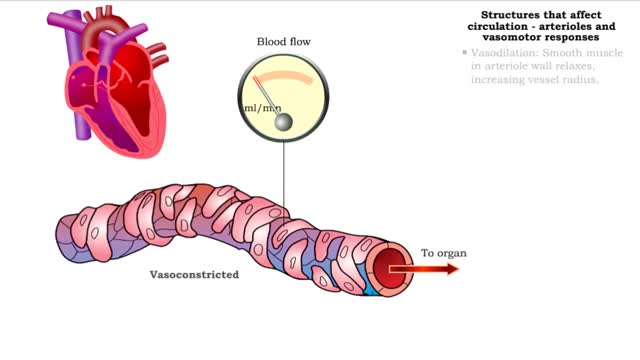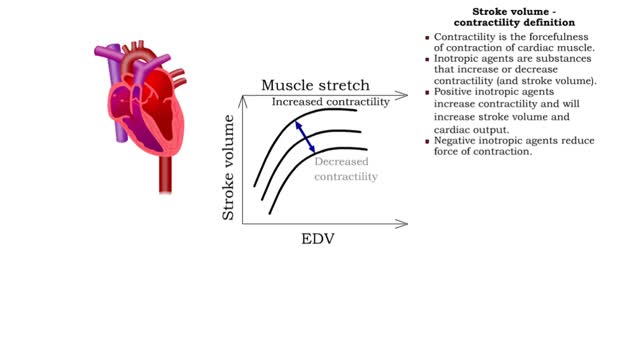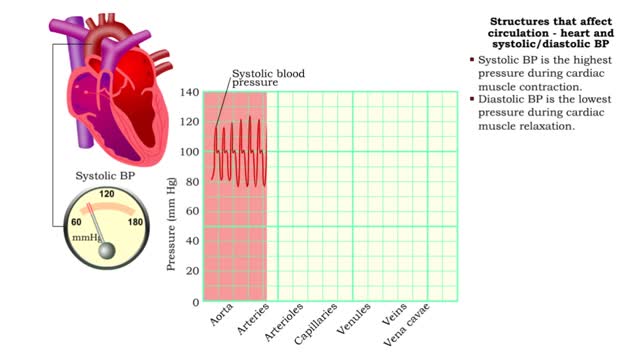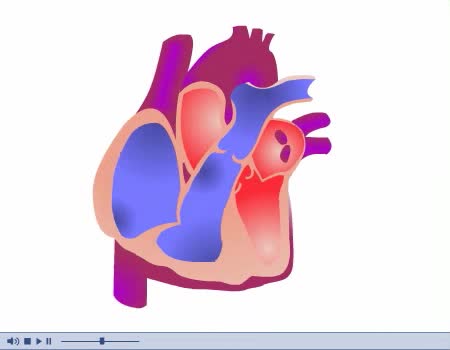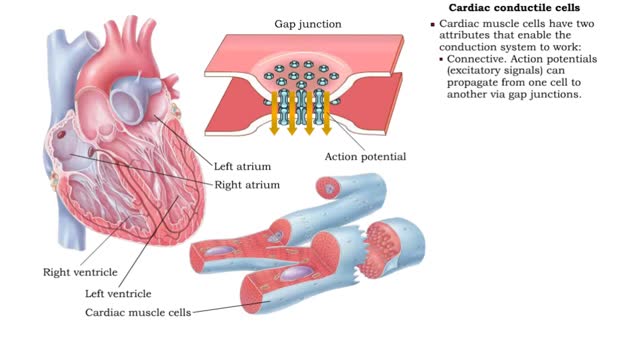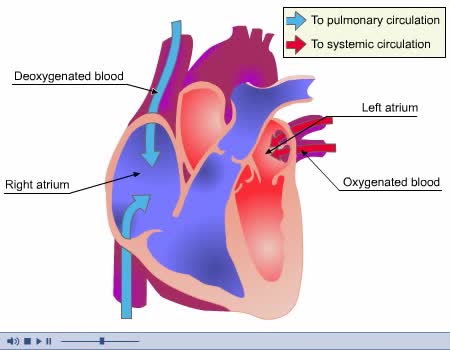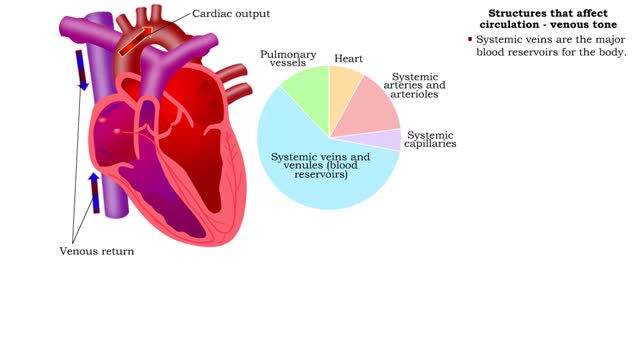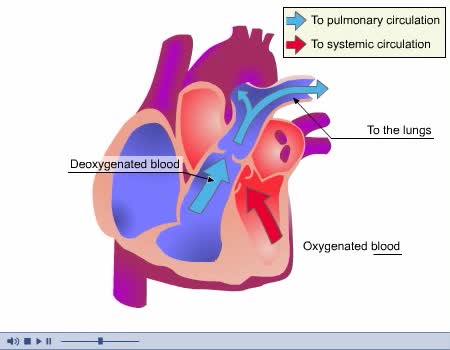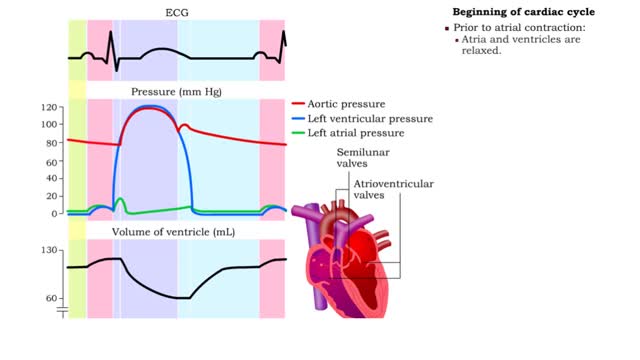Search Results
Results for: 'cardiac output'
Structures that affect circulation - arterioles and vasomotor responses and venous return
By: HWC, Views: 11715
■ Small arteries and arterioles determine SVR. • Blood pressure drops significantly as blood passes through arterioles. • Decreasing arteriole radius and decreased wall elasticity are the main reasons for increased SVR. ■ Small changes in arteriole radius can cause large changes in ...
By: HWC, Views: 11610
Preload definition • Preload is the degree of stretch of cardiac muscles cells prior to contraction. • The amount of stretch is related to the end-diastolic volume[EDV]. • Increased return blood flow from the veins increases end-diastolic volume. Cardiac muscle sarcomeres stretch and ...
Structures that affect circulation - heart and systolic/diastolic BP
By: HWC, Views: 11559
• Heart generates blood pressure. • Arterioles produce resistance thereby regulating blood flow to tissues. • Veins store blood; kidneys regulate blood volume; both affect venous return and cardiac output. ■ Contractions of the ventricles determine blood pressure, which drives th...
By: Administrator, Views: 14777
Diastole and systole are two phases of the cardiac cycle. They occur as the heart beats, pumping blood through a system of blood vessels that carry blood to every part of the body. Systole occurs when the heart contracts to pump blood out, and diastole occurs when the heart relaxes after contract...
By: HWC, Views: 11799
• In order for the heart to function properly, all of its cells must contract in a specific sequence. This sequence is determined by a pathway known as the conduction system. • Cardiac muscle cells have two attributes that enable the conduction system to work: • Connective. Action pot...
Structures that affect circulation - kidneys, blood volume and venous tone
By: HWC, Views: 11736
• Kidneys regulate blood volume and blood osmolarity via salt and water reabsorption. • Increased reabsorption increases blood volume and venous return (and CO). • Decreased reabsorption increases urine production, which decreases blood volume and venous return (and CO). • Systemi...
Five phases of cardiac cycle & Atrial contraction
By: HWC, Views: 11729
1. Atrial contraction (atrial systole). 2. Isovolumetric (ventricular) contraction. 3. Ventricular ejection. 4. Isovolumetric (ventricular) relaxation. 5. Passive ventricular filling. Beginning of cardiac cycle • Prior to atrial contraction: • Atria and ventricles are relaxed....
Advertisement



